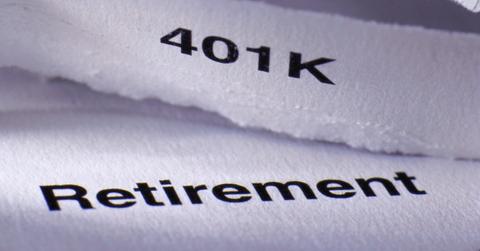COVID-19 401(k) Withdrawals Are Taxable, Have a Three-Year Window
Did you take a COVID-19 401(k) withdrawal under the CARES Act? Here’s what to know about that CARES provision and the taxation of withdrawals.
May 10 2021, Published 3:14 p.m. ET

Some retirement savers made a penalty-free, COVID-19-related 401(k) withdrawal last year and jumped on a provision in the Coronavirus Aid, Relief, and Economic Security (CARES) Act.
Although the CARES Act stripped the 10-percent early withdrawal fee from those disbursements, the money is still taxable income, as some beneficiaries are learning.
“A lot of people were laid off or had their hours cut or their businesses shut,” Beau Henderson, lead retirement planning specialist with RichLife Advisors in Gainesville, Ga., told U.S. News & World Report last month. “A lot of people took distributions. Many didn’t consider rules. The rules are that it will be a taxable distribution.”
What did the provision entail, and when was the CARES Act 401(k) withdrawal deadline?
The CARES Act provision stipulated that workers of any age could withdraw $100,000 from their company-sponsored 401(k) plan or individual retirement account (IRA) in 2020 without penalty. During other years, workers who take money out of their 401(k) or IRA before the age of 59 1/2 face a 10-percent early withdrawal penalty.

Savings illustration
An IRS explainer defined coronavirus-related distributions as those “made from an eligible retirement plan to a qualified individual from Jan. 1, 2020, to December 30, 2020, up to an aggregate limit of $100,000 from all plans and IRAs.” So, Dec. 30 was the deadline for the penalty-free 401(k) withdrawals.
How many people took advantage of the CARES Act’s 401(k) withdrawal provision?
A few people jumped at the chance to withdraw retirement savings without penalty. Fidelity reported that 1.3 million people—amounting to 5.2 percent of participants—withdrew money from its workplace savings plans between April 1 and October 31, 2020. The company said that its average 401(k) balance rose 4 percent YoY, according to CNBC.
Meanwhile, 4.5 percent of Vanguard participants had made a 401(k) withdrawal under the provision by the end of September 2020, and 7 percent of eligible T. Rowe Price participants had taken COVID-related distribution from their 401(k) as of the time of the report.
It seems like most people were inclined not to touch their retirement savings, following the advice of many financial experts. “Even if it’s possible to borrow from your 401(k) or take a distribution … consider this a last resort,” Charles Schwab Foundation president Carrie Schwab-Pomerantz told CNBC. “While present circumstances may be difficult, I’d counsel anyone to avoid jeopardizing their future retirement unless absolutely necessary. You may not appreciate the full consequences until much later.”
Are the 401(k) withdrawals taxable?
401(k) and IRA withdrawals are taxable, but the CARES Act gave taxpayers who took emergency withdrawals from their retirement accounts during 2020 three years to pay those taxes, starting from the year of the disbursement, U.S. News & World Report states.
“The three-year option is a pretty good window,” Ed Slott, a certified public accountant and the author of The New Retirement Savings Time Bomb, told the magazine. “Hopefully your finances came around and improved from last year. If things don’t turn around, you have until the last day of year three.”
